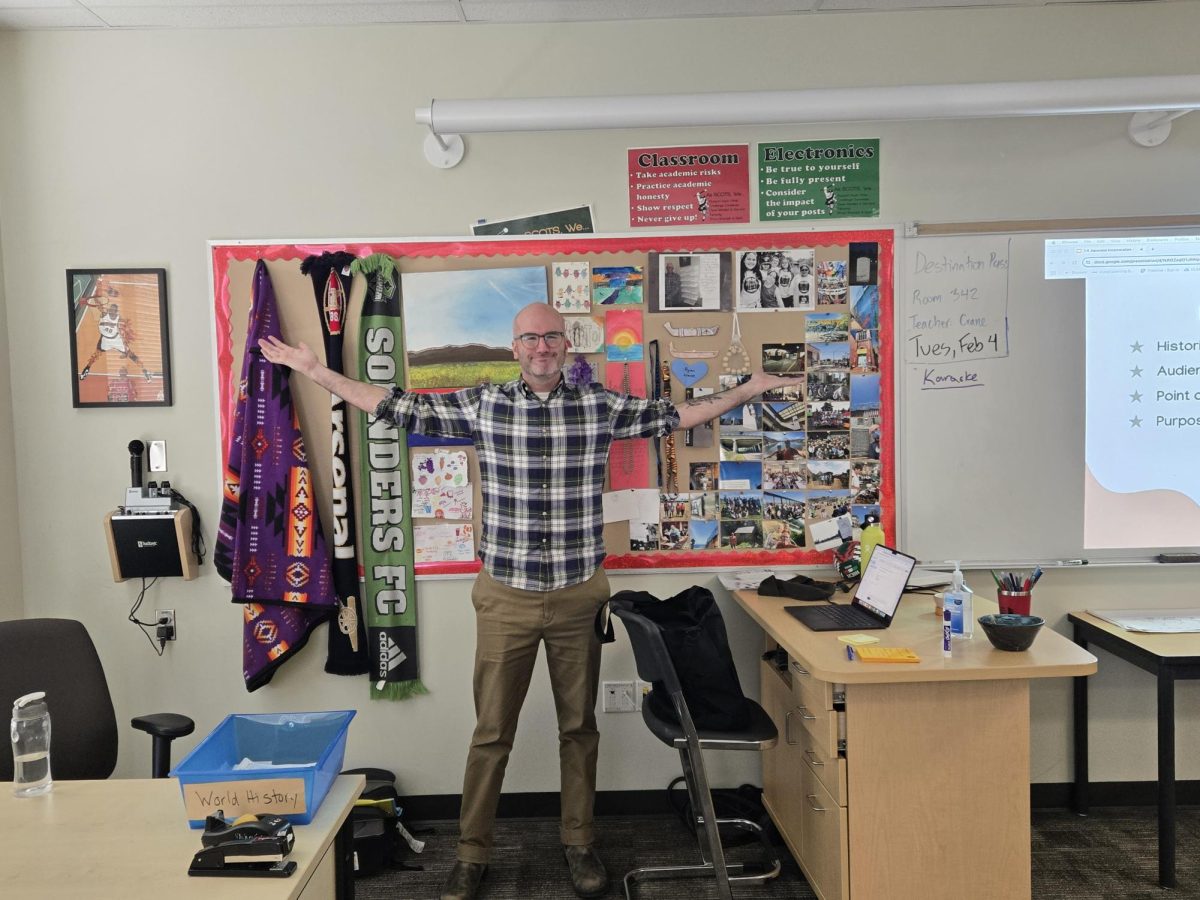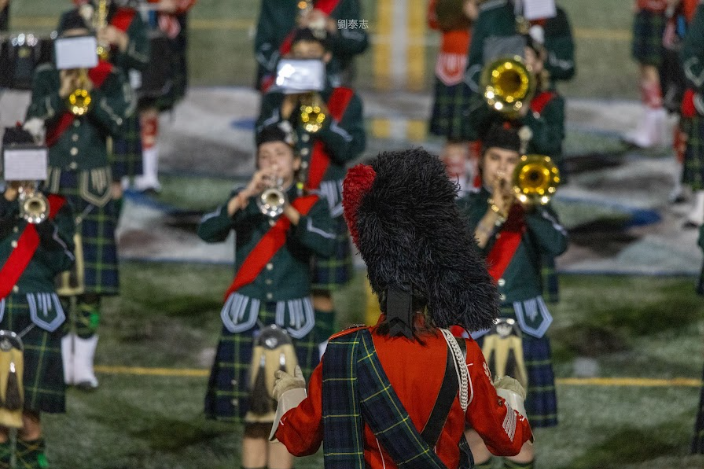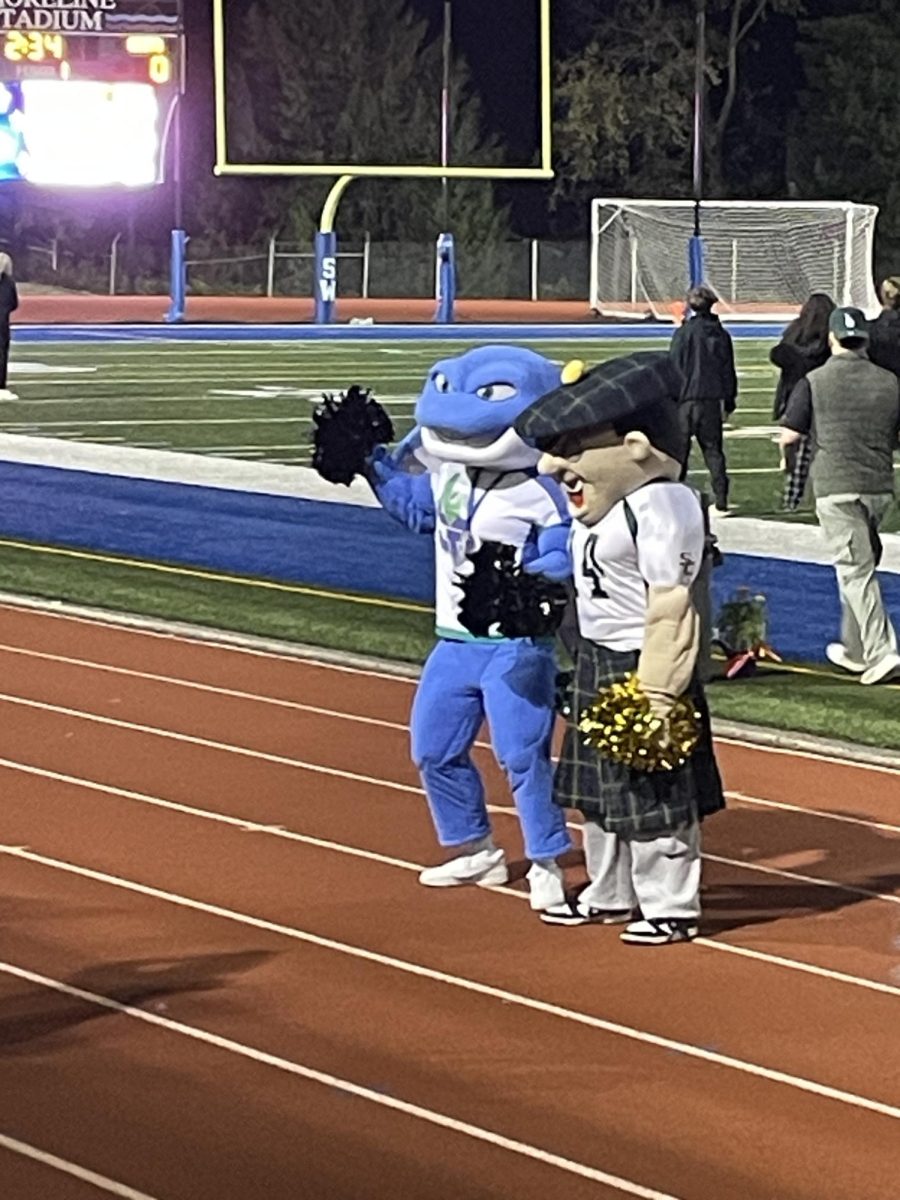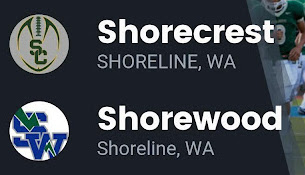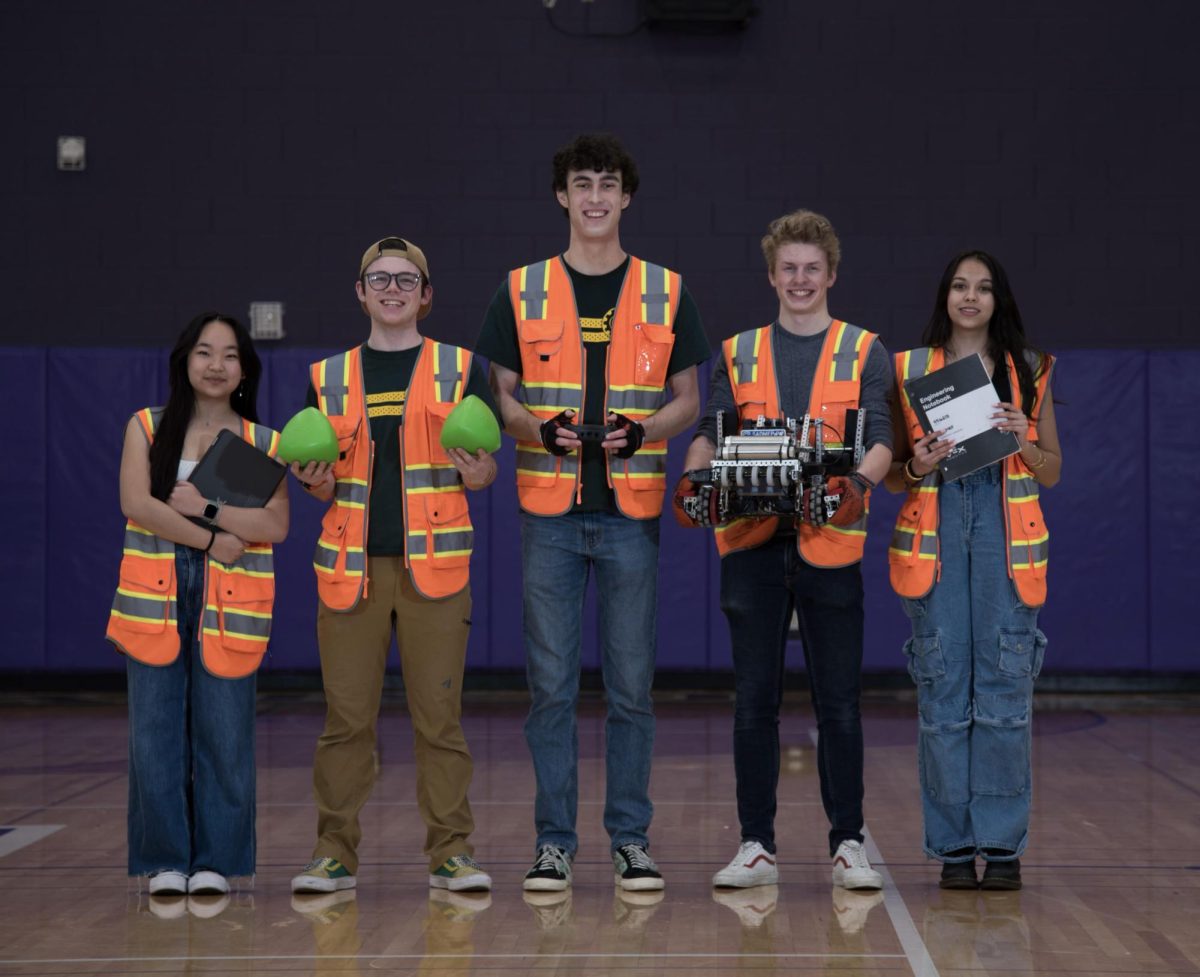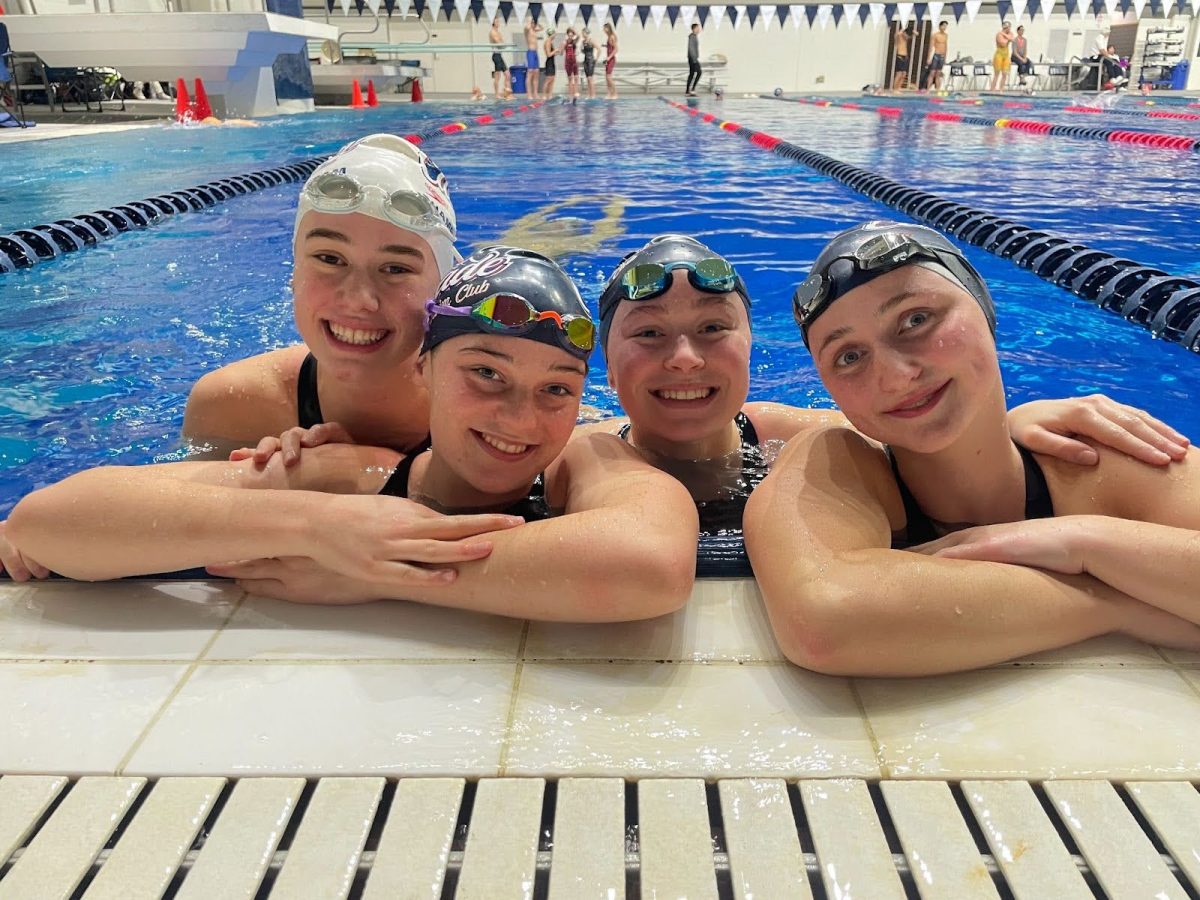Interviewee: Mr. Ryan Crane, History/Social Studies teacher
Interviewer: Michael Batbayar
Date of Interview: 4 February 2025 (Lunch Break)
Location of Interview: Room 342, Shorecrest High School
List of Acronyms: MB = Michael Batbayar, RC = Ryan Crane
MB:
What made you decide to teach?
RC:
Short story long, long story short, when I was in high school, I struggled a lot with mental health, academics, [and] with relationships. What that would look like in a classroom was me acting a fool, messing around, being mean to other students, being mean to teachers, basically doing things that would get me kicked out of the classroom. So I spent most of my high school journey being kicked out into the hallway and being sent into the principal’s office.
I’d go off campus and take public transportation to the mall and just walk around by myself. And what I desperately needed was an adult in my corner to believe in me, to see me. Even though I was being a punk, to be like, “Okay, you’re being a punk, but I still believe in you, you still matter, you’re still worth (something)” …Ultimately I became a teacher to make sure that every teenager who comes to my classroom … knows that they matter, that they’re special, and that they’re worth believing in.
MB:
Do you have a specific teacher who influenced you to become a history teacher?
RC:
I think at a very shallow level, and I didn’t really have teachers who influenced me as a person, but I played basketball in high school, and most of my history teachers were my basketball coaches, so there is this sort of camaraderie or chummy-ness.
MB:
A correlation?
RC:
Yeah, you know, talking about the game last night and talking about practice after school and sort of this like, made me care a little bit more, try a little harder. And history was always, it was just a little bit more interesting to me. So when the teacher puts on a movie or we do some sort of assignment, I would already be a little more interested. Not necessarily an influence as a person, but definitely made the classroom I was a little bit more engaging.
MB:
Do you have a hidden talent that you’d like to develop more?
RC:
When it comes to music, I wouldn’t necessarily call these hidden talents or weird things that I can do, but maybe students would think that it would be cool if I became some famous whistler, because I’m good at whistling…I love playing harmonica, the drums, and dancing, and I think all of those things would be fun to explore some more. I’d love to be in a casual band that needed a harmonica player. But it’d be fun to go to more dance things, dance events, clubs, to do that kind of thing more. And I’m really good at the hand drums, drum lessons would be really interesting, yeah.
MB:
Nice. Next question, how does technology make teaching simpler or difficult? I know that’s a pretty big issue right now.
RC:
(Chuckling) You’ve just got all the easy questions, MB, wow. This isn’t what you’re asking, but if I could go back in time and take technology out of the classroom, hot take, I would. I think I would rather go back to a time when there were no phones, laptops, computers, or even like, screens teachers do Google Slides from, and just go back to the basics. That would be (better), rather than doing the dance of how to use it in an engaging way versus perpetuating screen time for adults and students. I think I’ve tried to figure out how to have more paper assignments. For students to do more handwriting and spend less time on their screens. I’d say it’s easier to teach, but I think it makes it harder to learn for students.
MB:
That’s a great way to put it.
RC:
I spend probably 5 to 6 hours creating one day’s lesson, and I’ve done that like, you know, overtime so each time isn’t necessary 5 to 6 hours because I’m not always creating brand new things, because I have done something that um, but having like a Google slideshow that I can just click through, press play on a video, have a screenshot of some sort of primary source. That makes structure and routine easy, and I think, to an extent, that the familiarity is nice for students. Like coming out of the journal entry, you know, that sort of routine, but I worry about not just like, not just if a student is engaged. Are they getting as much as they can out of a lesson because it’s through technology? So that, yes, but also is the constant “Chromebook”, “Canvas”, “Google Slides”, “video”, “click this link” is that just perpetuating things in their brain that keeps them from, like, actually experiencing like the depths of learning and knowledge acquisition, I think, I think there may be something, maybe something there.
MB:
If you could travel back in time, which historical event would you like to witness first-hand?
RC:
September 26th, 1985, when I was born. No, I’m just kidding, I would not wanna be in that room.
Definitely something related to the Civil Rights movement. I would have loved to do, would have loved to have shown up for the march led by MLK, John Lewis, Bayard Rustin from Selma, Alabama to Montgomery, Alabama, I would have marched to protest discrimination in the South and Montgomery that would have been, walking across the Edmund Pettus Bridge with other leaders of the civil rights movement would have been really cool.
And I like to think if I had lived in Seattle at the time… I would have shown up, ‘cause when I see old photos and videos of the Civil Rights movement and I see white men, I’m like, “That’s my guy”, you know. It wasn’t just, it was for civil rights for black people, um, but equality for black Americans, I think, also improves the life of a collective community when everyone is experiencing access to flourishing and everyone benefits. So I like the thought that I would show up for that kind of thing, and that’s honestly the lens through which I view things today, is what I will tell Oscar, my baby, in 15 years when he’s a junior in high school. When he is learning about this moment in time, he says, “Daddy, what did you do when this thing happened?”. I want to, I want to be able to be vulnerable and proud of my answer, but you know, maybe be honest and say I didn’t do what I could’ve.
MB:
Do you have any traditions or superstitions you have for the 1st day of school?
RC:
No, but this question makes me think I should or could. It would be fun if I could wear the same bow tie or something on the 1st day. Ah, no, I mean, just the traditions of starting class with your classic icebreakers, but nothing interesting.
MB:
Do you have a favorite book/movie/song related to U.S. History or history in general?
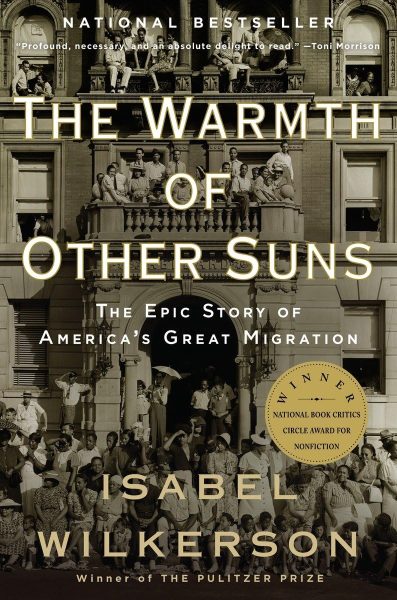
RC:
Hmm, yeah. The Warmth of Other Suns is a book by Isabel Wilkerson, who writes a huge, sweeping, non-fiction account of different stories of the Great Migration. Black Americans were fleeing economic strife and violence in the South for the North, Midwest, and West. Beautiful book, super transformative for me. And then there’s a book by Angela Davis that looks at the intersection point between Palestinian movements for freedom and black lives, movements for freedom, that was influential for me. Those are 2 good ones, and then the music in United States history that connects to protest. Some of the most beautiful, moving songs of American music history are tied to protests, tied to jazz music, negro-spirtiuals, and blues. Even with so much big rock and roll music of the Vietnam War era, Creedence Clearwater Revival, Jefferson Airplane, and Jimi Hendrix. I’d love to teach a course someday that looks at the history of protest music through U.S. history.
MB:
Which other class would you like to enroll in, even for a day, and why?
RC:
Probably Ms. Fresco’s Ethnic Studies class. It would be very cool to learn alongside her students there and learn from her. I have never taken a class like that, even though a lot of the stuff is kind of related to that kind of thing, that would be cool and meaningful. Not a math class, sorry, math teachers.
MB:
Do you have an era of US history that you’re not comfortable teaching? As in, you never delved into the subject that much and are hesitant to do so now?
RC:
That’s a great question. Much more interesting, even if you’re going to ask about the good era, it’s interesting. Hmm (long pause), I’d say, not necessarily, but anytime something is related to economics, I kind of shy away from it, or I look at the social impacts. I love looking at the social impacts of stuff on people, cultures, and movements.
RC:
But things like some teachers will do, like capitalism, communism stuff, some people will do the economic side of the industrial era, industrialization, or they’ll deep dive into the causes of the Great Depression. And I just, I’m not interested in it, but my lack of interest is also tied to me, not understanding numbers very well, so economics, I just, yeah.
MB:
That makes a lot of sense. Are there any current trends that are baffling to you?
RC:
Oh my God, how much time do we have? I’m fascinated by slang, especially the slang that teenagers use. If you’re in my class, you know that I’ll use slang once in a while, mostly just to make fun of it, not to try to be cool. I just don’t get TikTok stuff.
RC:
I was a freshman in college when Facebook came out, and that made sense to me. A little bit later, Instagram came out, and it made sense to me to take a picture, write a little caption about it, and share photos like a cool photo album. But TikTok and memes, when students are like doing a TikTok dance that someone else, some influencer, did, I’m like “I love you, but that seems so dumb”, “I love you, but that’s baffling”, your words. When students communicate with each other on Snapchat, they’re just taking a picture of the ceiling, and they say something or they say nothing, and it’s just a picture of a ceiling. I’m like? (confusion) What in the world, why?
RC:
Is that really what I’m competing with? As your teacher, who is trying to engage you?
MB:
So, you like to travel a lot-
RC:
Oh my gosh, I just found the sauce, that’s why it tasted so dry, Michael. (Mr. Crane had been eating his salad with ZERO condiments) I’m halfway through- (the salad).
MB:
I thought you didn’t like the sauce and were…
RC:
(Astonished) You saw the sauce? Michael, you should have said something. That’s so funny.
MB:
I didn’t say anything because I saw you throw the rest of the seeds out, so…
RC:
What a bummer, I messed it up.
Brief intermission as RC mixed his newly found sauce with his half-eaten salad.
MB:
Do you have a favorite era of the United States that you’d like to teach more about? As in, you would like to extend it by another two or three class periods?
RC:
Favorite era. An era that I just don’t have time for, because I feel like the Civil Rights Movement, the 1950s, 60s, and 70s, and I just love teaching college classes on it. Or teaching the entire high school year on it, but I do give that the most time out of any other (section)… But I’ll also say, and this is what a lot of history teachers, U.S. history teachers, come up against, is that you get cooking earlier in the year with different units, things always take longer than you expect. And then you get to May, the middle of May. And you’re looking at Memorial Day weekend coming up, and you’re like, “Oh my gosh, I’m only to 1975, and we have 3 weeks of school left. What have I done?”, you know? And so getting more time to get into the 1990s, I’d love to finish the course with the election of Barack Obama in 2008. I think that will be a really meaningful way, especially for my course, in which I teach a lot of Black American history to sort of get closer to the present day, to hit on the “War on Terror”, 9/11, the recession (2007-2009) of that you were born into. So yeah, the ’90s and the early 2000s would be cool to get to, I just never have time for it. Teachers always do this in the last week, assigning student groups a decade. 1970, 80, 90, the 2000s, and – (MB: I hate that) I know, I always end up doing that just to get to like, “Hey, we did all of history!”
MB:
If you could take your students on a field trip anywhere in the world, where would you take them? I know you’ve taken students across the world before.
RC:
(Long pause) I would take them to the West Bank, Palestine.
MB:
Palestine.
RC:
Yeah, take them to the community of Hebron, just outside of the (Cave of) Patriarchs. We would walk through this old market –
MB:
Have you been there before?
RC:
Yeah, super transformative for me. That wouldn’t be like a fun trip, but it’s (MB: Informative, right?), is very informative, and transformative. Yeah, and also – and I’ve done this as well – love to take students to 2 the U.S.-Mexico border. I know, depending on the student, that that trip would hit differently, similar to going to Palestine. But I used to take students to places where there was conflict and where conflict was high. There’s also conflict in our own community.
RC:
But conflict is high, especially in terms of how the U.S. reports on it in our pictures, pictures we have, as people not in those conflicts of those conflicts. Take them to those places, see the beauties in the places, but also learn from people working for change in those places, like what their lives are like, and where they see change. I think it’s been very powerful to stand at the US.-Mexico border on both the US side and walk across to the Tijuana (a city in Mexico) side and look at the border wall that dips down the Pacific Ocean, seeing the beauty of the beach, but also the image of the wall. It is such a powerful experience to be in it with students and learn alongside students, yeah.
MB:
Do you have another subject that you’d be interested in teaching? So World History or something like that? Civics, or even P.E.? Another subject you’d like to teach.
RC:
I think a “walking for fun” class would be nice. A walking class. It would be easy, but just like a physical movement class, a day. I teach World History currently to ninth graders, but I mostly teach U.S. History…I do my best to understand government stuff, and political stuff, and also talking about present-day stuff would be hard for me because …I get a bit rattled with hosting conflicting discussions of conflict in the classroom. It’s easier for me as a U.S. History teacher to sort of be like “It’s in the past!”, and the present, but sort of leaning on the past. So not Civics.
RC:
I love U.S. history. I used to teach AP U.S. History, but I don’t really have a desire to do that. If they wanted me to teach it, I would. But the pressure and push to a big test, not my style. So I think I’m where I… (MB: You’re happy where you are, right?) Yeah, I’m happy where I want to be.
MB:
What is the most interesting thing you’ve learned about U.S. History or history in general while researching or teaching? Like a mind-blowing thing that you’d never heard of before.
RC:
Yeah, I can’t think of a little factoid, but when you ask that question, I think about how in my 20s, so much of my understanding of the world was just dismantled in a lot of ways. I traveled a lot, started having friends who were different from me, and saw that just because I am a beneficiary of the history of a place doesn’t mean everyone is.
RC:
The examples of hardship and injustice in history, in the present day, no longer surprise me. And so I think the learning is that just because something doesn’t impact me, it doesn’t mean it doesn’t impact other people.
MB:
Yeah. What countries are on your bucket list right now to travel to? You’ve visited 40-odd countries, right?
RC:
Scotland. Wanna try to go there in August, Scotland would be cool. I’d love to travel to more Asian countries like Japan or Mongolia. Tibet, to sort of get into the Himalayas. But the airplane ride, for some reason, jet lag just kills me. Um, I’ve been to Vietnam, Laos, Cambodia, South Korea, and Taiwan, and I love those places, but just the traveling aspect of it has been really hard. (MB: And language barriers) Yes, the language barrier is just (glowers humorously)
Ooh, Patagonia (a region in South America), I would love to go there. Others would be Chile and Argentina. Scotland, West Africa, Ghana…
MB:
We’ll end with a kind of serious question, so-
RC:
(Lightheartedly) What’s my favorite thing about Michael?
MB:
(Haha) What do you think students want from a teacher? Especially a U.S. History teacher?
RC:
I think teachers in general, students want to feel seen, heard, and safe in the classroom, they want to feel cared about. Because teachers have 150 students, and students have all these different stopping points in a big high school. I guess teens and students want to feel like they’re known. And then specifically to history, I think students want to see relevance to what they’re learning. They want to know whether what they’re learning will matter.
After the interview, we chatted a bit and said goodbye to one another.
As Mr. Crane is my first-period U.S. History teacher, he naturally was one of the first teachers I spoke to at Shorecrest (I transferred here this school year). As the end of the 2024-2025 school year nears, I can confidently say that Mr. Crane cares deeply for his students and is passionate and fervent about his subject matter. He’s an exceptional listener and is always able to create a safe space for students to share their thoughts and feelings. Once again, an enormous thanks to Mr. Crane and all faculty members at Shorecrest who dedicate their time to their students!




